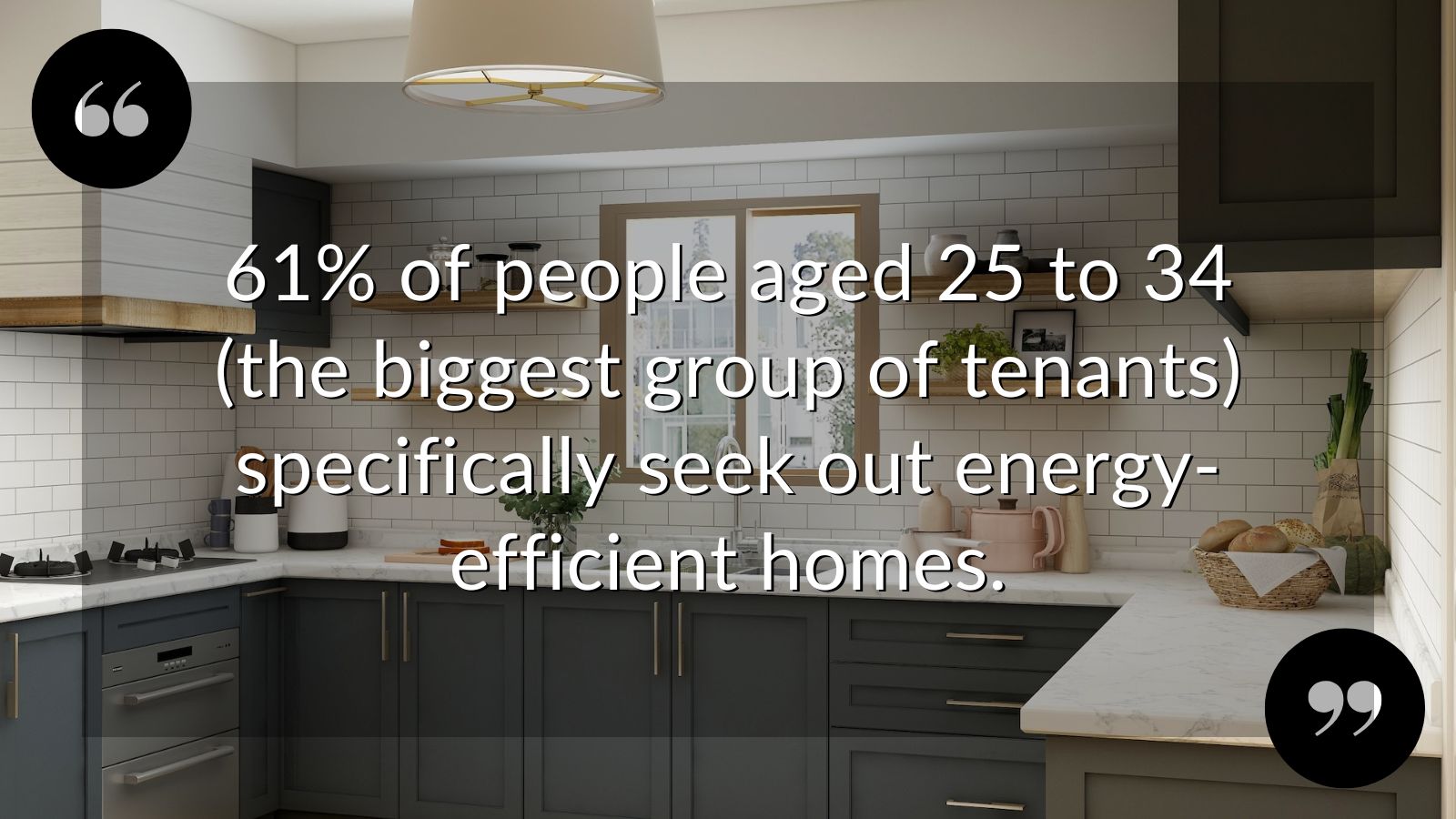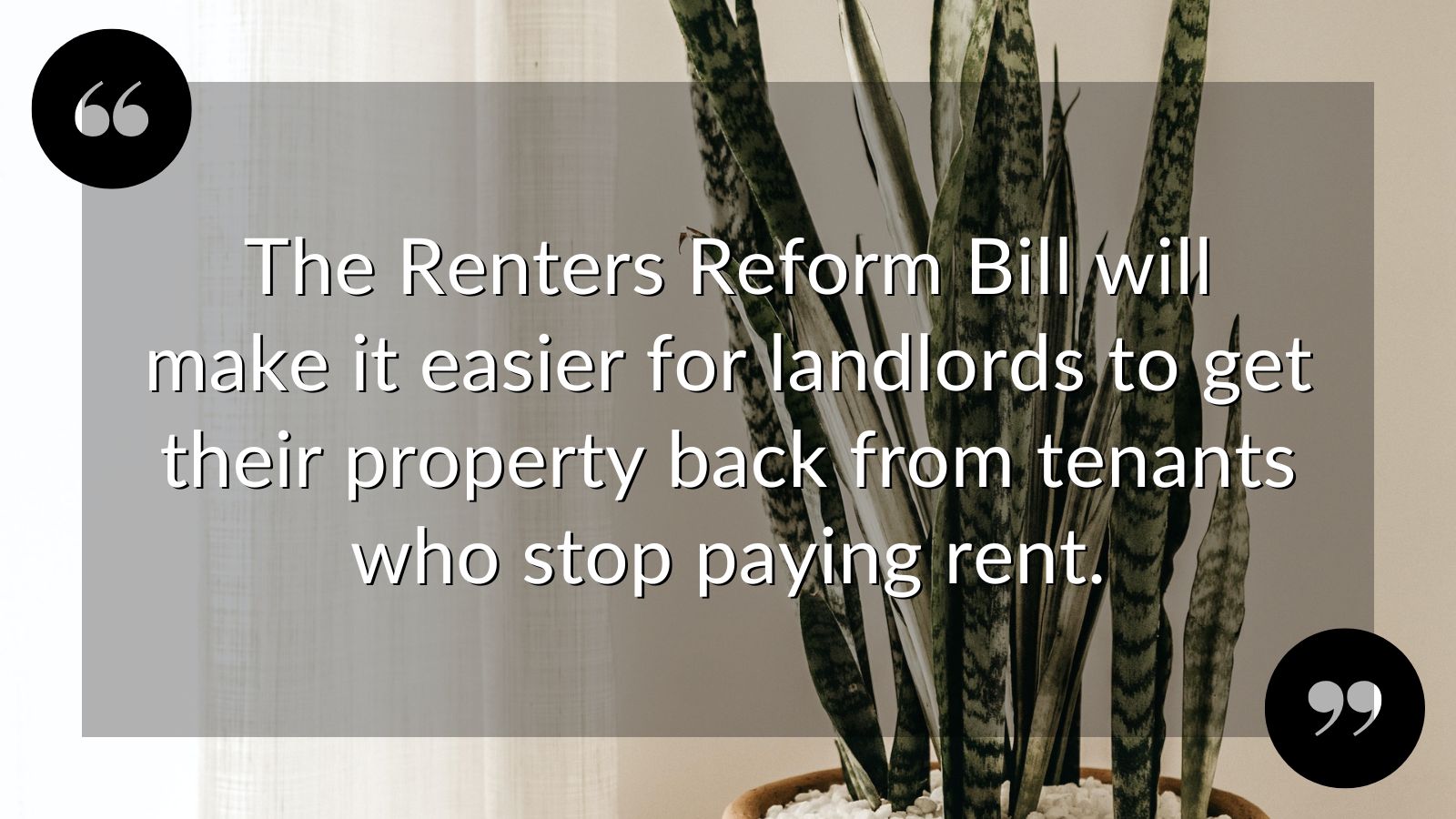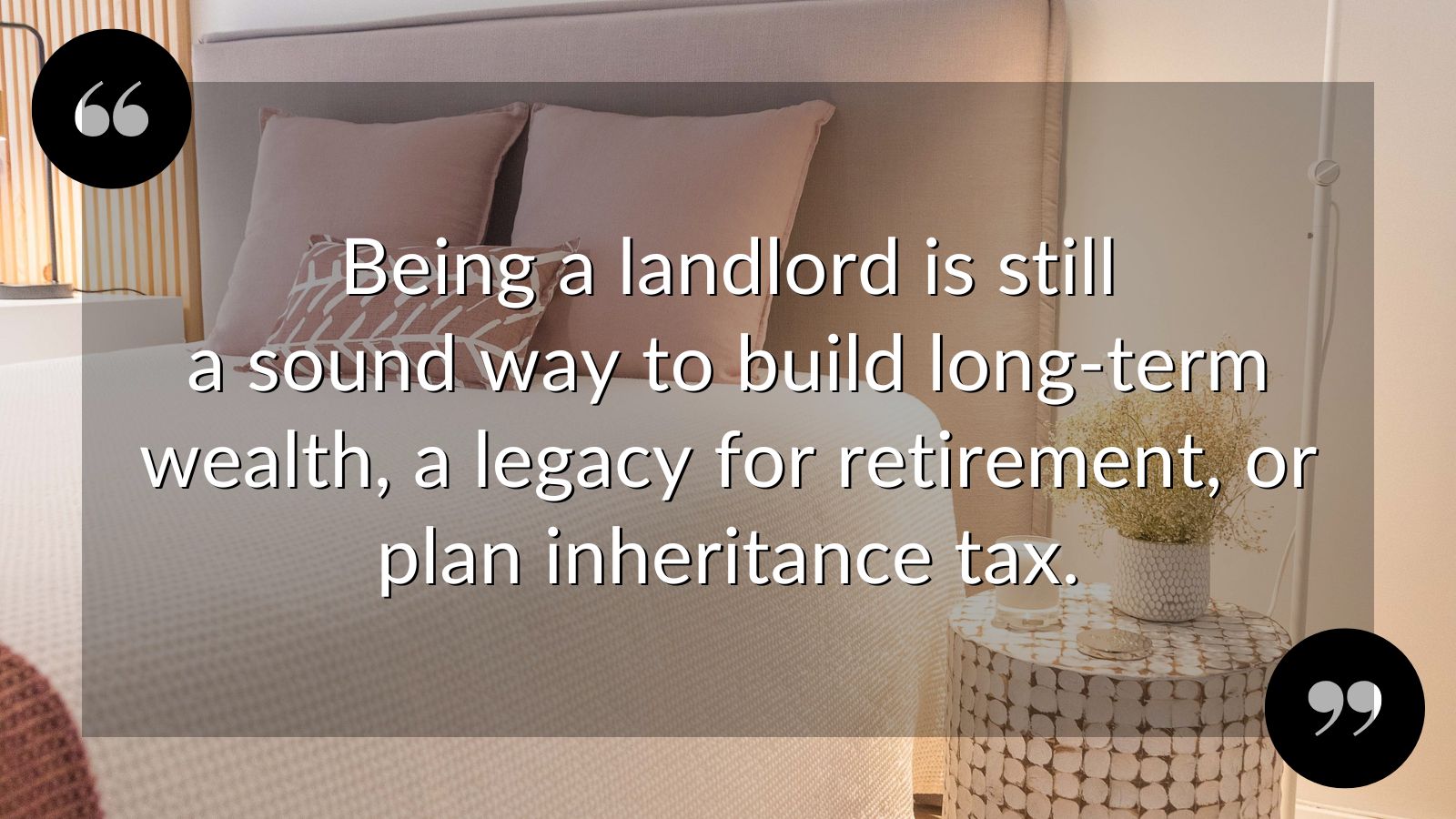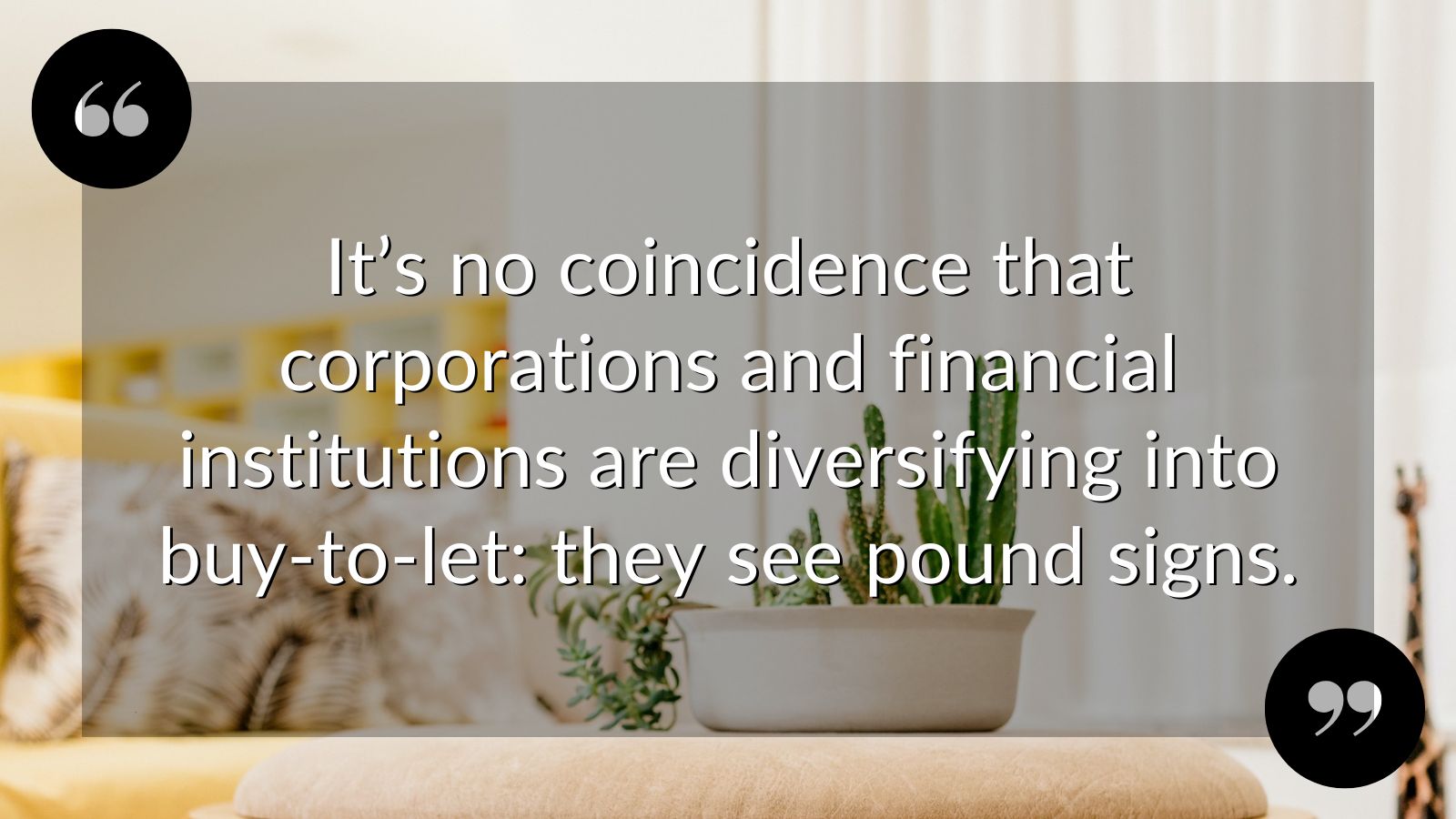“Is buy-to-let still worth it?” Hardly a day goes by when someone doesn’t ask us that question.
For a lot of people, the answer is no. Changing lettings law and tax rules have caused many landlords to drop out and sell up, particularly if rent is their main or only source of income.
But here's the thing: many private landlords are still actively expanding their portfolios, and large corporations are starting to invest heavily in rental homes. So why is that?
Well, they're embracing change, and forward-thinking investors are building strong and profitable strategies around the new factors affecting buy-to-let, including:
- Tighter financing and lending rules.
- The rise of energy-conscious tenants.
- New opportunities with the Renters (Reform) Bill.
- A switch from short-term yields to building long-term wealth.
- Competition from corporate landlords.
Another huge change in the lettings world is that almost half of landlords are now aged 40 or under. So let's look at how a new generation is planning a bright future with buy-to-let.

TACKLING TIGHTER LENDING
Getting a mortgage on a rental property has changed a lot, and you now need a minimum of 25% as a deposit.
That can be a barrier for both first-time and existing landlords, but there are also advantages and ways around it.
- Borrowing less against a property offsets the impact of higher interest rates, making it easier to cover your costs and achieve a net monthly profit.
- Injecting more cash into your purchase gives you a larger equity cushion, reducing the impact of paying back the capital at the end of an interest-only mortgage.
- Previously solo landlords are pooling their finances with friends, family and associates to generate larger deposits quickly and create new partnerships.
So although all the talk is about the death of 95% buy-to-let mortgages, most investors don’t borrow at that level anyway, and having less debt makes for a more solvent business.

ENERGY-CONSCIOUS TENANTS
Demand for more efficient homes keeps increasing through a combination of higher energy bills and greater climate awareness. And the good news is that demand always equals opportunity.
- Imagine if spending a few thousand on energy efficiency improvements would net you just £100 extra per month in rent - how many investments offer that rate of return?
- Even with the most scaremongering estimates of £15,000 to upgrade extremely sub-standard homes, a £1,200 (or 8%) yearly return trumps any ISA or savings account.
- Almost every industry has proved that people will hunt down and pay more money for sustainable and eco-friendly credentials to reduce their carbon footprint.
- Even the 11% average rent increase since April 2022 is dwarfed by recent soaring energy prices, focusing tenants even more on homes with lower running costs.
- A recent LRG survey found that 56% of people specifically seek out energy-efficient homes, rising to 61% among those aged 25 to 34 - the biggest group of tenants.
So from an ethical and financial standpoint, there's a win-win for everyone: increased rent for landlords, better homes with lower bills for tenants, and fewer carbon emissions.

RENTERS (REFORM) BILL OPPORTUNITIES
The Renters (Reform) Bill was introduced to Parliament on 17th May 2023 and aims to make it law that every rental property is comfortable, warm, efficient and safe. Is that so bad?
It is for investors with poor-quality homes, but it's also an opportunity for responsible landlords to start or expand their portfolios for less money.
- Many landlords are choosing to sell up to avoid the new legislation, bringing homes to the market with ready-made tenancies and instant income.
- Those landlords need to sell at prices that reflect the need to bring their properties up to scratch, making it easier to find homes for less than their full value.
- It’s far less disruptive and more cost-effective to incorporate energy efficiency measures in a property you're already renovating.
Finally, the Bill will make it easier to get your property back from tenants who cause damage or stop paying rent - a major step forward from the current very flawed system.

GETTING RICH SLOWLY
Buying to let is no longer a get-rich-quick scheme, but being a landlord is still a sound way to build long-term wealth, a legacy for your retirement, or plan inheritance tax.
- There’s no definitive answer on whether shares or property perform better, but bricks and mortar are certainly safer and less volatile.
- Rents usually rise by at least the rate of inflation every year, giving you an appreciating capital asset with a lifetime income that regularly outperforms the cost of living.
- Setting up a limited company to buy rental homes, and appointing family members as directors, can help you pass on assets with a lower inheritance tax liability.
All of these combine to make a solid foundation of reliable investments to create a secure financial future for you and your family.

CORPORATE COMPETITION
It’s no coincidence that large institutions are getting in on buy-to-let - they see pound signs. And while their strategy will include economies of scale, there is another way.
- Most tenants aren’t delighted at the prospect of dealing with faceless corporations, and private landlords can play a completely different game.
- You can carve out a niche for your homes through standout design and personal service against the inevitable cookie-cutter corporate rentals.
- You could also build to rent by working with other landlords, developers or builders to buy land and save money on buying costs, stamp duty and materials.
Tenants want more than copy-and-paste homes, and private landlords can use that to their advantage by cultivating the natural attraction and loyalty towards independent businesses.
What's your next step?
If you'd like to join the next generation of landlords and build long-term wealth with profitable rental homes in Launceston, we'd love to help.
Call us on 01566 818180 or email us at lettings@athelstans.co.uk for a friendly, expert chat about the local market and demand, and let's start making plans!



Share this with
Email
Facebook
Messenger
Twitter
Pinterest
LinkedIn
Copy this link